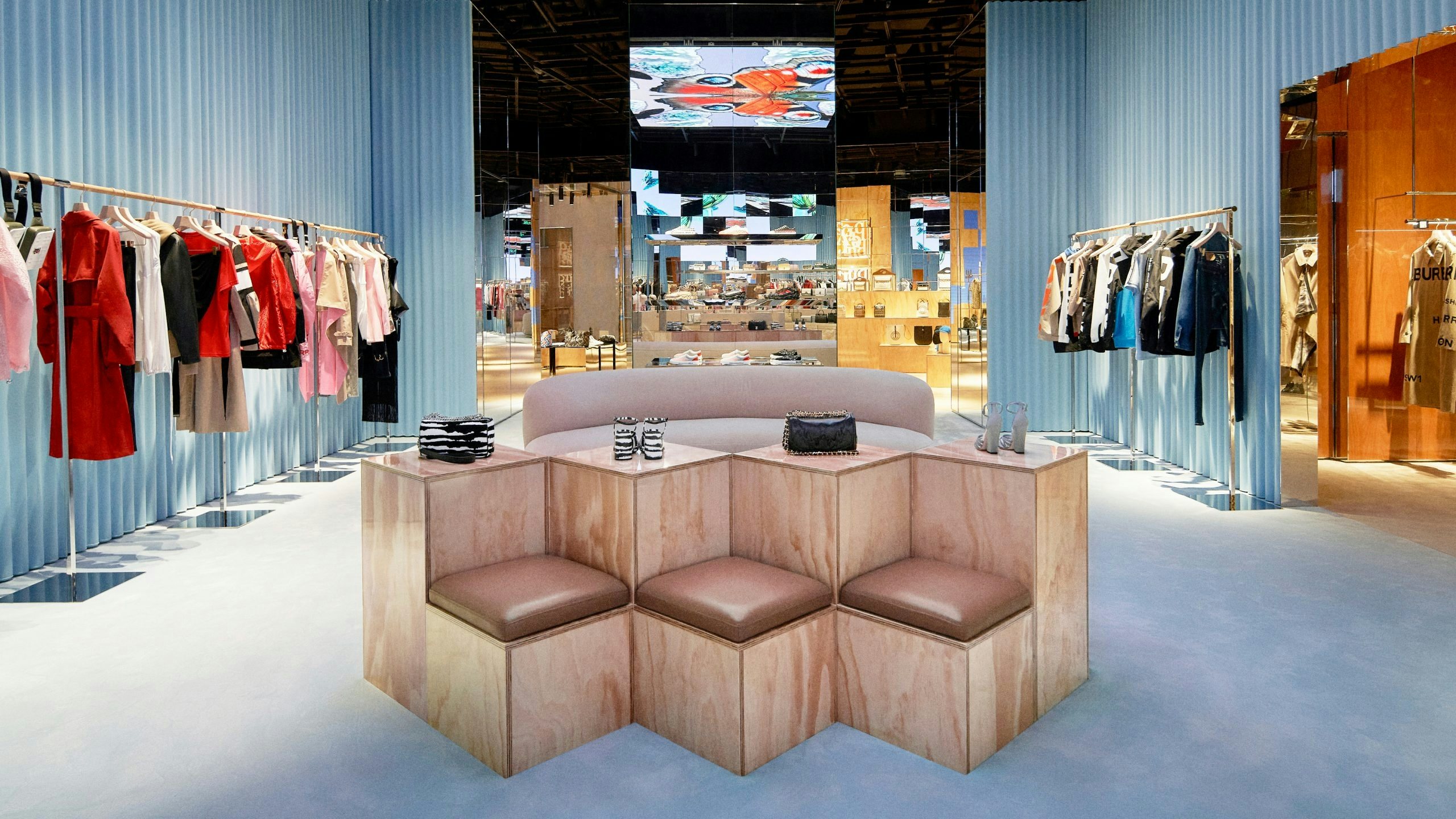Burberry’s social retail store — a first among luxury brands — opened doors today in China’s tech hub of Shenzhen. The project is a result of an exclusive partnership with WeChat owner, Tencent, which is powering all of the in-store technology. The 5,800-square-feet concept store is located in the luxury mall MixC Shenzhen Bay, where it has blended the brand’s online and offline worlds for customers. President and country head of Burberry China, Josie Zhang, told Jing Daily that, “in a sense, customers are connected with us once they stand in front of the interactive store window.” She added that this feature “was inspired by 2020 Fall’s mirrored runway” and changes its “form with people’s movement.” The store is Burberry's 63rd in Mainland China.
Once through the door, a customer’s experiences are guided by a digital point system called ‘Social Currency,' which accumulates a customer’s in-store activity and social engagements with the brand through a customized WeChat Mini Program. In addition to sharing content and learning brand stories, the Mini Program also allows users to book the store's themed fitting rooms and unlock items they can purchase at Thomas’ Café (named after the brand's founder, Thomas Burberry).
“For us, this project is a process of exploration, learning, and innovation,” said Zhang about the new concept store. “We hope to roll out the social retail concept to other regions and networks with time.”
[wpgallery id="104533"]
Luxury brands have entered an age where they are vying to achieve digital firsts. Burberry became one of the first brands to engage in luxury livestreaming this March, and now it has become the first to open a social retail concept store. The performance of this ground-breaking store will not only determine whether the concept could become a growth investment for the brand across China but, as with livestreaming, other luxury brands are waiting to see if this new platform will be worth the investment.
The store opening comes as China relaxes more of its stringent lockdown measures, and as Chinese consumers, who have endured months in quarantine, are engaging in some much-needed revenge shopping. Meanwhile, Tencent’s Shenzhen headquarters inside the MixC mall might be the perfect choice for Burberry. The income level of Shenzhen residents has skyrocketed over the past two decades as the city has moved up the industrial value chain (the rise of Shenzhen-based Tencent, Huawei, and the drone-maker DJI has been a big part of the city's success.) Shenzhen’s GDP per capita doubled over the last 10 years, topping the chart of all Chinese cities with $29,498 last year.
But historically, Shenzhen has never been a popular choice for luxury shoppers, given its close proximity to Hong Kong. A 2014 report by commercial realtor CBRE pointed to this as the main reason for the city's lack of luxury brands. But, now that Hong Kong’s luxury retail market has been stunted by protests and COVID-19, new concept stores might be able to win the attention of both locals and neighbors from the nearby affluent city of Guangzhou.
MixC Shenzhen Bay opened its doors in 2004 but didn't attract luxury brands until its second phase opening in 2009. Since then, brands like Louis Vuitton, Hermès, Christian Dior, and Cartier have opened shop, and the mall has been a beacon for the group remaining its top earner of rent revenue.
Burberry began working on this project at the beginning of last year, said Zhang, which was long before the brand’s COO and CFO, Julie Brown, announced Burberry’s $255 million (£195 million) savings plan in the aftermath of the pandemic. Therefore, one must wonder if, in the current business environment, would Burberry be able to allocate follow-up funding for more social stores, even if other brands are encouraged by their results?
